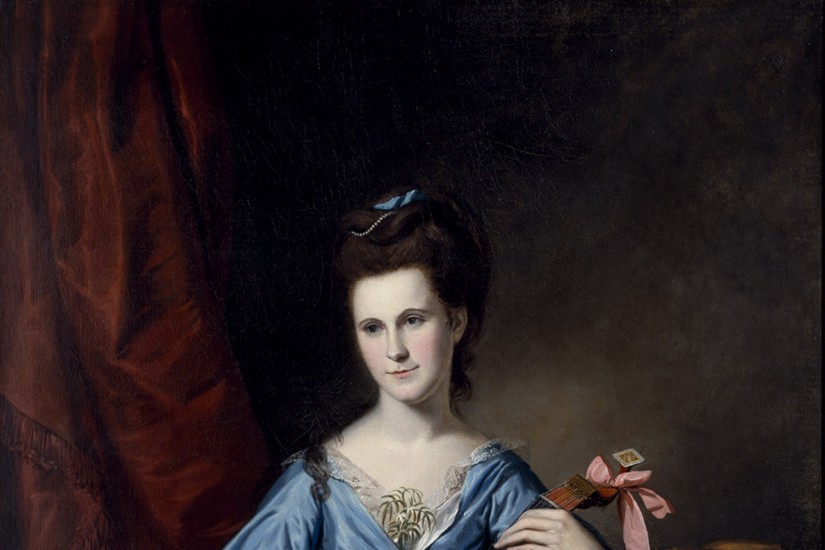In late January of 1778, the darkest moment of the Revolutionary War, Benjamin Rush wrote to his young wife, Julia: “I thank you for your hint respecting G. Washington, and accept it as a new proof of your affection for me.”
Julia Stockton Rush, who was only 18, had suggested that her brilliant but promiscuously opinionated husband—one of the youngest signers of the Declaration of Independence and now, at 32, surgeon general for the Continental Army’s most active battleground—needed to stop gossiping about George Washington, who was both his commander in chief and his friend. In letters and in conversation, Benjamin was repeating the military backbiting over Washington’s losses the previous year.
In this letter—recently discovered at a small Philadelphia library among a collection of Julia’s longest-hidden correspondence—Rush promised to take her advice. He claimed that so many of the Pennsylvanians in the Continental Congress “speak my sentiments so fully” that he was “satisfied” and would be “silent.” Too late. A disparaging letter in Rush’s hand was making its way into Washington’s camp. The general never forgave him.
And the doctor learned a painful lesson—one he found himself relearning throughout his marriage. “Had I yielded to [your mother’s] advice upon many occasions,” he later wrote to his children, “I should have known less distress from various causes in my journey thro’ life.”
While researching my new book, Rush: Revolution, Madness & the Visionary Doctor Who Became a Founding Father, I managed to track down new and revealing correspondence to, from and about Benjamin, the misunderstood patriot, physician, writer and educator known as the “American Hippocrates.” But one of the biggest surprises was finding unpublished writing by and to Julia. The Rushes’ descendants hid much of the couple’s writing away, partly to shield the unvarnished opinions of Benjamin and his favorite correspondents, Presidents John Adams and Thomas Jefferson, and partly to protect the career prospects of some of their sons. (Their son Richard served four presidents, as attorney general, secretary of the treasury and U.S. representative to Great Britain and France.)
Julia herself chose to burn many letters because they were “fit for scarcely any eyes.” So she has been known primarily through a “devotional journal” filled with mournful prayers and doleful observations about her husband’s death, which gave the impression that she wasn’t a very interesting writer—or person. But the new correspondence reveals her as a vastly underappreciated Revolutionary woman who had influence and opinions of her own and was very much at the center of events during and after the struggle for independence.
